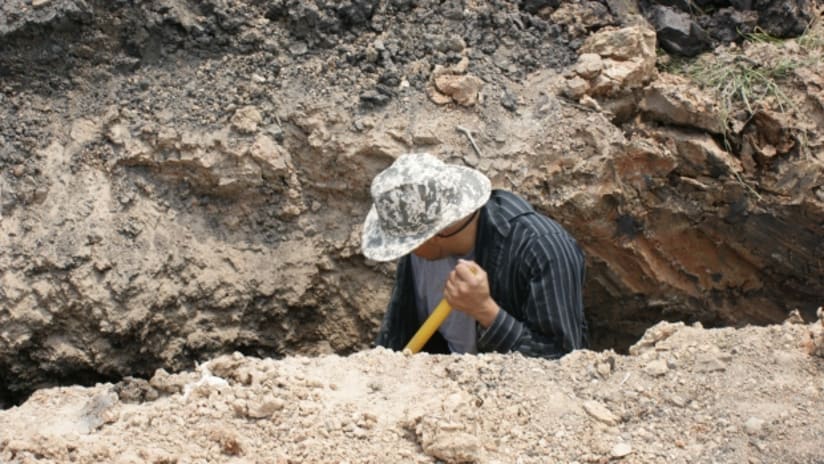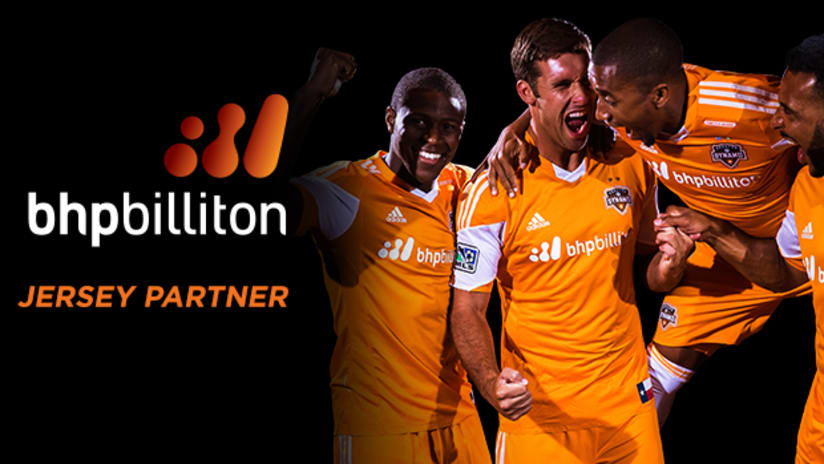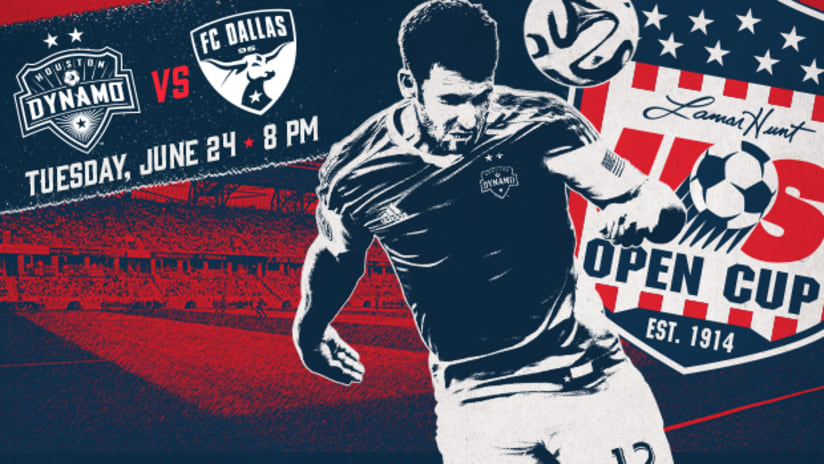With negotiations on his new contract wrapping up, Geoff Cameron gave an interview to Swedish soccer website SvenskaFans.com, answering questions that were then translated into Swedish. The article is available below:
Intervju med Geoff Cameron, nyckelspelare i Houston Dynamo
Since we doubt too many fans speak fluent Swedish, here is what Geoff had to say for himself in English:
1. To start off, please talk a little about
your youth and college career!
I grew up outside of Boston, playing in a
diverse area with a lot of different soccer cultures – including people who
spoke Spanish, Portuguese, and English. I grew up in a soccer environment, I
played club soccer for Bayside United, and then I was fortunate enough to get
recruited and go to two good soccer schools, West
Virginia University,
and the University
of Rhode Island, for
college.
2.
In 2008 you were drafted by the Houston Dynamo, a
team coming from two consecutive MLS Cup wins. What was it like to start your
professional career in such a strong and successful team?
It was awesome,
because there were a lot of older veterans that were leaders, and they know
what it takes to win championships and they know what it takes to have a long
career in professional soccer. Having the veterans give you advice is a pretty
good stepping stone to help you come into a team.
3. When looking back on 2008, your first year
as a professional, what do you think about it now?
I learned that time
flies. Seasons are quick, and you can’t let a bad game get hold of you. You
have to move on, because there are other games coming right away. You need to
try to prove something every game and every day at practice, and you want to
keep on improving every year.
4.
In 2009 you played mostly as a central defender,
a position you had no earlier experience of (correct me if I’m wrong). Despite
that, you made a great season and became a MLS Defender of the Year candidate.
Why did it go so well, and were you in any way surprised by your own level of
performance?
I was surprised at how
well everything went in 2009, but a lot of it came from skills I had as a
midfielder. Since I had played in the middle, I was used to having the ball at
my feet under pressure, and I was able to use some of that as a center back.
Reading the game comes from playing at center midfield, and I think you do that
was well playing center back. The difference is you have everything in front of
you and you can see the whole field. It was tough, sometimes, because I always
wanted to be part of the play with the ball, but as a center back you’re always
part of the play in a different way by organizing and putting yourself and
other people in the right situations.
5. Houston
had a good year in 2009 but this season was really poor. What is your
explanation to that? How much can be explained by the loss of Ricardo Clark and
Stuart Holden?
Stu and Rico are
obviously two very good international players, so we did miss them. Saying
that, we felt we had the caliber around us to fill those shoes. But there were a
lot of mental mistakes and inconsistency and some unlucky plays where we were
unable to finish out games. Every mistake we made, we got punished. Before last
year, when we made a mistake, there was someone to cover for us. I do think
last year is going to make us better, because a lot of the younger guys had to
step up, and it gave them an opportunity to play, so now they have more
experience coming into this year.
6. Even though the team had a below-par season,
are there any of your teammates who you think did well this year? What do you
think of your own performance this year, despite the knee injury?
I think the most
consistent players probably were Lovel Palmer and Andrew Hainault, especially
Lovel as a guy coming into the league and going through that transition period
to understanding that it’s a different game here. As far as my performance, I
thought it was pretty good, especially in the beginning before I went down.
After the injury, I felt like I recovered pretty well and finished strong.
7. What needs to be done (by Houston) in order to have a better season in
2011?
I think it starts with
being positive. We had some tough times last year, but I think we learned how
to get over the hump over the course of the season, and we finished the year
with one of our best performances against Seattle.
So I think we need to take that play from the end of the year into the
preseason and the beginning of this year.
8. What can you say about Dominic Kinnear as a
coach?
He’s a very good coach
and a straightforward guy. He gives younger players opportunities, and he’s a
players’ coach. He understands players because he was one, and he knows how to
get the best out of you.
9. When playing as a central defender, who are
the hardest strikers (in MLS) to play against?
I would say Juan Pablo
Angel was one of the toughest to play against, just because his movement in and
around the box is very, very good. You think you have him one moment, and then
you don’t. Omar Cummings is also difficult to face because he’s so quick.
10. When playing as a central midfielder, who
are the hardest midfielders (in MLS) to play against?
I think the guy I
compare myself with who is a good player and I like going against is Osvaldo
Alonso from Seattle.
I think he’s a good, sound player. For me, he’s been one of my toughest
opponents, just because he can do everything and he has a good engine.
11. Do you now see yourself as a midfielder or
a defender? Which position do you prefer to play in?
I like both positions.
Toward the end of my career, I think I could become a regular center back, but
as of right now, I think I can use my strengths – like my running ability and
my technical ability – as a center mid. But I have no problem playing center
back. I feel comfortable there, especially playing with Bobby Boswell. We have a
good understanding of each other’s strengths and weaknesses, and I think we
proved that in 2009.
12. How would you describe yourself as a player
for someone who has never seen you play?
On the field, I’m
tall, I’m a hard worker, I have a good engine, and I’m technical and creative
with the ball. Aside from that, I hate to lose. I have a drive that I think is
different because I’ve worked for everything I’ve gotten in life, and I know
how hard that can be. It makes me appreciate everything that has happened and
every opportunity I’ve been given. So I want to leave everything on the field,
and even if I have a bad game, I’m going to work my butt off.
13. You made your national team debut in
February this year, What do you think of your chances of establishing yourself
in the national team?
I’d love to be on the U.S. roster for
the Gold Cup this year. That’s a goal of mine, and hopefully I’ll get an
opportunity. But I’m going to worry about myself and do well for my club team
and make sure I’m consistent, and the rest will take care of itself.
14. If you were to leave MLS, which country
(and perhaps club) would you like to play in?
I wouldn’t mind
playing in any of the top European leagues, really – the Bundesliga, the EPL, Italy, Spain,
Portugal
– anywhere with top competition.
15.
A lot of big name players have come to MLS
recently. What do you think about that development? Is it only positive for the
league and for US
soccer, or are there any drawbacks?
Bringing in these
players is a good thing, because it brings people into the stands and makes it
more well-known in the U.S.
It’s going to help the league. I think it brings a little bit of drama, because
a lot of people say some of these guys are on their way out and on their way to
retiring. I don’t think that’s true whatsoever. A great example is that LA and New York brought in big
players that are worldwide names, and they couldn’t get to the final. We have
really good competition here, and those players will tell you that soccer in
the U.S.
has come a long ways and is at a high level.
16. The MLS got some attention in Swedish media
following Fredrik Ljungberg’s move to Seattle (and later on Chicago). What do
you think about his performances in MLS?
I think he showed
pretty well in his first year with Seattle
in 2009. I remember playing with him in the All-Star Game against Everton, and
he seemed like a nice guy and a good player. I don’t know everything that
happened last year, but obviously things didn’t go quite as well for him.
17. You played for a season and a half with
Chris Wondolowski, when he was at Houston.
Are you as surprised as everyone else by his amazing 2010 season, or did you
see it coming?
I wasn’t surprised at
all. He’d always been our best finisher in training and always worked hard. I
think he needed to get on a different team and get a fresh start. He deserved
it, and I think a lot of the guys are happy for him.
18. What is the “soccer climate” like in Texas in general, and in Houston in particular? Is it different
compared to where you grew up in Massachusetts?
Which city is, in your opinion, the “soccer capital” of the USA?
I think they’re
similar, because they’re both diverse when it comes to cultures and
ethnicities. Boston is maybe more diverse,
because there are so many different cultures that live in the Boston area. I grew up on a team with players
from four or five different areas, and they all have a soccer background with
different styles. I played with guys from Central America,
Portugal, Scotland, and the U.S., and that made it very unique.
Here in Houston,
I think there is a big advantage because you can play outdoors year-round,
whereas up north you can only play outdoors for several months and then you go
indoors, which is completely different.
19. What do you think needs to be done in order
to make the MLS even better as a league?
I’d like us to follow
the world schedule, because then we would be on the same timeline as all the
other countries. I think we could deal with the cold weather because they deal
with it in Europe in 20-degree weather in England
and Germany.
It would help us be able to compete more with European teams in friendlies
because everybody would be building up at the same time. It would also make a
lot of MLS teams more available to play against European teams.
20. Finally, suppose someone who does not
follow the MLS reads this interview. Tell him/her why he/she should start doing
so!
I think MLS is a great
league to watch because there’s a good talent level and the league is growing.
Established players are playing here, and we’re also sending players to some of
the top leagues in the world, so you can see rising stars play in MLS before
they go to the big clubs. I think we’re just as good as the Scandinavian
leagues, and we’ve shown that a few times in preseason games, so I think any
Scandinavian soccer fans should check out MLS.





